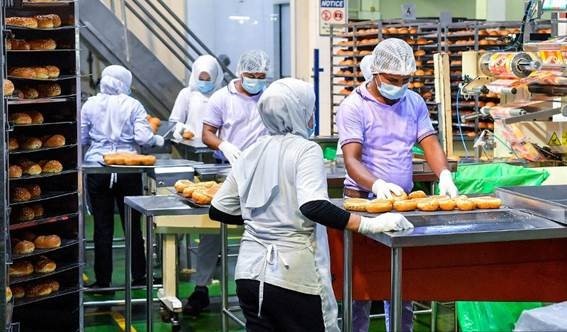
GEORGE TOWN: The government should not entertain the proposal to subsidise the RM1,500 minimum wage for small-medium enterprises (SMEs) that are unable to pay the sum, an economist said.
Geoffrey Williams of the Malaysia University of Science and Technology said although the proposal was viable, “it should not be done”.
“It would amount to subsidising inefficient or ‘zombie’ companies – which is not the purpose of the minimum wage,” he told FMT.
Williams also said the subsidy would be open to abuse.
Employers, he explained, might just pay a low wage because the wage would be topped up and they could pocket the balance for themselves.
“And monitoring this type of abuse would not be viable technically or in cost terms.”
Williams said it would be much better for the government to help SMEs pay the minimum wage by aiding in improving their business model rather than subsidising them to maintain bad businesses and management.
He also suggested that negative income tax or tax credits be employed instead of minimum wage subsidies.
Under this, people earning below a threshold would receive a tax credit rather than paying tax, he said.
“The threshold can be a living wage, a Universal Basic Income (UBI), or a minimum wage, depending on the costs and benefits which would have to be studied in depth. In fact, a negative income tax can be interpreted as a form of UBI.”
Such policies, he added, would offer a better incentive than minimum wages or wage subsidies because it was related to income earned rather than a lump sum, and it could be handled through the tax system.
Williams was responding to a recent proposal by Parti Sosialis Malaysia (PSM) that the government assist SMEs which were unable to pay the RM1,500 minimum wage to their employees.
The party also said Putrajaya could do so by gradually increasing tax rates on wealthy individuals and corporations, and use the revenue to cross-subsidise the SMEs.
On PSM’s tax increase proposal, Williams said imposing higher taxes on the rich was not the solution, adding it was a “disincentive, and would not raise much in government revenue.
Meanwhile, economist Barjoyai Bardai of Universiti Tun Abdul Razak (UniRazak) said a minimum wage subsidy programme by the government would be costly as it would have to spend billions of ringgit annually on the programme.
“For how long can the government afford to subsidise (minimum wage for SMEs)? The better thing is to exempt them (SMEs) from the policy (RM1,500 minimum wage rate). But that will mean a double standard (for SMEs),” he told FMT.
Barjoyai also said the main issue with the increase in the minimum wage rate to RM1,500 was that the wage policy would force SME employers to pay salaries beyond productivity levels.
He suggested that the government focus on helping SMEs increase their productivity by investing in technologies and equipment that would assist these enterprises.
“Then, they (SMEs) can afford to increase the salary of their workers,” he added.
He also opposed PSM’s tax increase proposal, arguing that it would result in corporations relocating to countries with lower corporate tax rates and tax evasion by wealthy individuals.
Source: https://www.freemalaysiatoday.com/category/nation/2022/04/20/minimum-wage-subsidy-for-smes-will-stifle-productivity-says-economist/

